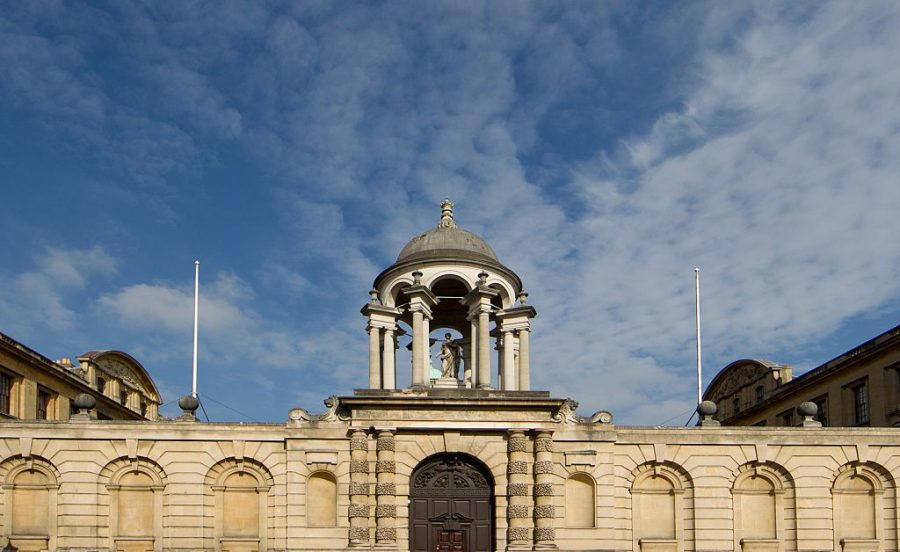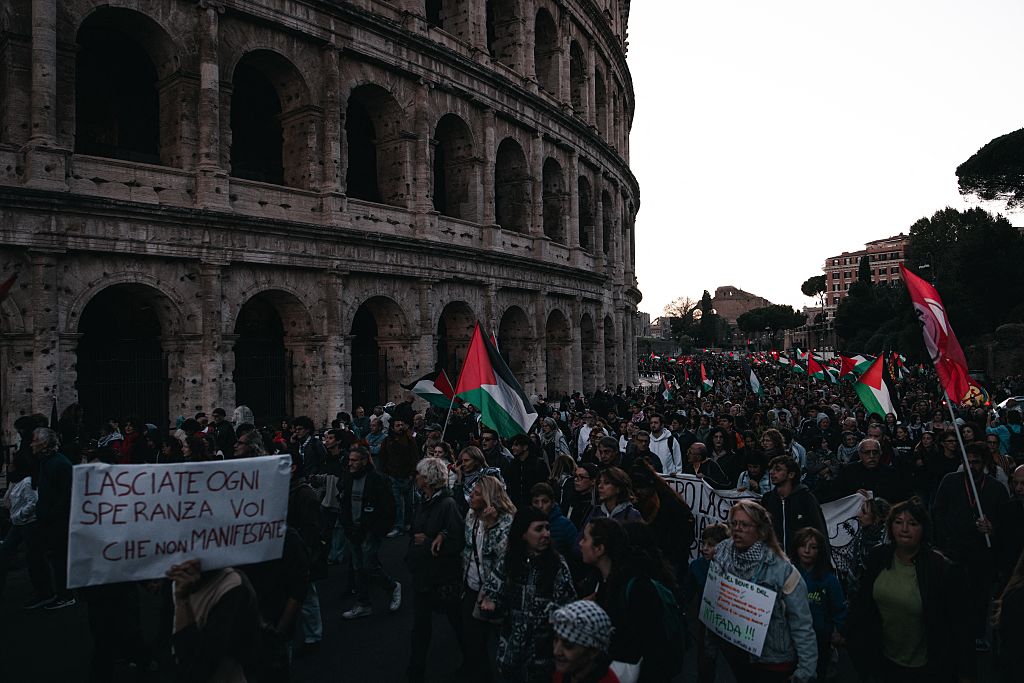The Queen’s College, Oxford, has put in a planning application to add the names of five alumni who died fighting for the Germans to its first world war memorial. Richard Tice, deputy leader of Reform, expressed his outrage at the plan earlier this week. ‘Where will this wokery end?’ he told the Telegraph. ‘War memorials in the UK should be to remember those who paid the ultimate sacrifice to protect and defend the Allied nations.’
The Great War hit Oxford colleges particularly hard. 20 per cent of the 15,000 who enlisted died. Officers led from the front, which was reflected in their mortality rate – almost double the overall average.
‘There is some corner of a foreign field’ runs in both directions
William Spooner, warden of New College, took a stand. He ensured that German alumni were included alongside their colleagues on the running list of the dead, which was kept on the chapel door while the war was fought. Even within the college, this inclusion was controversial. One member defended the practice, asking, ‘Do not those three dead Germans need our prayers more rather than less if we believe that they died fighting for a wrong and mistaken cause?’
A supporter from Keble wrote in defence of New College’s actions. He argued that those who couldn’t understand the reason for including the German names ‘will certainly never understand why our public schools and universities have sent out so many thousands of young men to fight’. Spooner himself pointed out that the first German on the list had ‘died in the act of carrying a wounded comrade’ and that ‘to carry on a spirit of hate against those who passed into another world can make us neither better patriots nor better men’.
When memorials were first raised in the years immediately after the war, no college – not even New College, where Spooner still presided – included their German members who were among the fallen. By 1930, however, New had added a plaque to make good the omission. A Canadian lieutenant visiting in 1941 whilst on leave thought it ‘a quiet manifestation of what I have found to be a typical English characteristic’. Wokery – if it is what Reform believe it to be – has a long history.
In 1994, my own college, Magdalen, joined this crashing wave of political correctness. ‘Poet, Scholar, Soldier’ is inscribed above the tablet commemorating Ernst Stadler’s death at Ypres in 1914, with a line of his poetry beneath. No controversy accompanied the plaque’s installation, only a visit from the German ambassador. ‘In memory of the men of this college who coming from a foreign land entered into the inheritance of this place,’ reads New College’s memorial to its central powers alumni, ‘& returning fought & died for their country’. (The lack of punctuation makes more sense engraved in the block capitals of a memorial.)
I recently read Patrick Leigh Fermor’s account of kidnapping General Kreipe from Crete in the second world war. Some of the tension comes from the mutual respect evident between two men who might at any moment be the death of each other. Fermor believes Kreipe an honourable man, aghast at some of the actions of his country’s military. Easy to remember, or it should be, that the simplistic claim – ‘the only good Nazi is a dead Nazi’ – is dishonest in a way that dishonours reality. Their leaders’ philosophy was unforgivable, as were the actions of many of their compatriots, but plenty of individuals, like Kreipe, were decent men trapped in a terrible conflict.
Nevertheless, it remains hard to imagine British memorials to the second world war including those with roots in this country who fought for our enemy. But it is easier – or it should be – to accept that the bravery of those who fought in the Great War, on both sides, was undiminished by the utter evil of the war that followed.
I would be doing a disservice to Richard Tice, about whom I am content to know little, if I were to give the impression I thought him a monster for what he said. I don’t know how much the Telegraph told him, or how much time he had to consider. Perhaps Tice, influenced by the Telegraph’s framing or a focus on the second world war, simply mistook a historical correction for a betrayal of memory. To think the worst of people we do not know is not the lesson taught by a cenotaph.
Wilfred Owen returned to the Western front in 1918 not because he hated the Germans, or approved of the continuance of the Great War, but because he felt it was the only way to do his duty by the men who fought. We do not need to approve of the politics of their leaders to recognise the valour of those who risk their lives.
Our war memorials honour the dead and honour our history. These men are not being added to British memorials as an act of self-hating political correctness. Their omission is being corrected because, in a way that mattered then and matters now, they had roots in our country. ‘There is some corner of a foreign field’ runs in both directions.
The action proposed by Queen’s is an affirmation of our better values, not a mockery of them. After the American civil war, Lincoln was criticised for respecting his old foes. ‘Do I not destroy my enemies,’ he answered, ‘when I make them my friends?’ Having said that it remains hard to imagine include German enemies of British memorials to the second world war, it is worth adding that Magdalen did exactly that. When they belatedly raised a plaque in 2001 to the alumni who had fought in that conflict, they included Helmuth von Waldthausen, who fell while involved in the horrors of Ukraine in 1943.
It was reasonable not to have included German names when the memorial first went up and wounds were fresh. But if there is anything wrong with adding the names now proposed, it is the fact it has taken a century to do so, and that those who could have read thesm, and remembered the men, are no longer here.







Comments